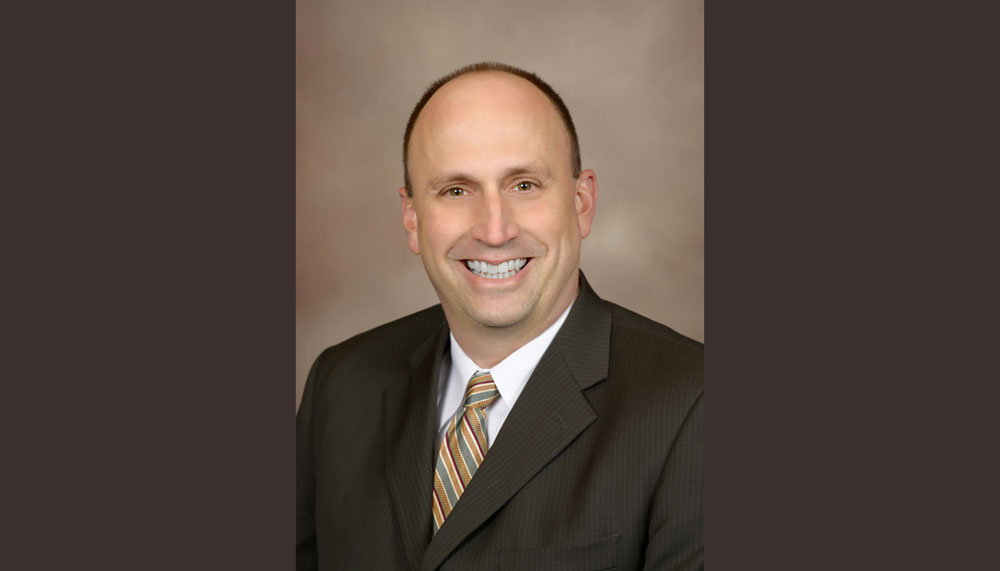Former Charles City man resentenced on child sex charges, after already completing prison term
By Bob Steenson, bsteenson@charlescitypress.com
A former Charles City man whose prison sentence for committing sexual acts with children had been overturned, has now been resentenced.
Shane Michael Davis, now living in Tama, had in January 2020 been sentenced to consecutive sentences of up to five years after pleading guilty to committing lascivious acts with a child, a Class D felony, and up to two years for committing an indecent act with a child, an aggravated misdemeanor, and had been sent to prison.

That sentence was overturned by the Iowa Supreme Court earlier this year and sent back to Floyd County District Court for resentencing because of questions concerning a plea agreement that had led to the guilty plea.
On Tuesday morning, Judge Christopher Foy gave Davis almost the same sentence as was initially handed down, but in this case he suspended the prison terms and fines and sentenced Davis to two years probation.
Davis, age 42, had already served as much time in prison on the original sentence as he was going to – a little over two years – and the Iowa Department of Corrections had already released him on parole on April 8 this year.
He then spent time in a halfway house in Marshalltown, and said he had about a year to go on his parole, although he would continue to be under the supervision of the Department of Corrections for an additional 10 years as part of Iowa’s special sentence for sexual offenders.
But the Iowa Supreme Court’s ruling essentially started the sentencing process back at the beginning, and Foy could have sentenced Davis to prison again.
During the sentencing hearing, Davis testified under oath about his experiences the past two years.
Under questioning by his attorney, William Morrison of Mason City, Davis said he had successfully completed the required three-month sex offender treatment program while in prison, as well as other programs, that he had stayed out of trouble in prison, and agreed with Morrison that had “received pretty much a glowing evaluation for your work.”
After Davis’ testimony, a Floyd County Attorney’s Office employee read lengthy victim impact statements from the two victims in the case and their parents, telling how Davis’ actions had shattered their lives and made them fearful and suspicious, and urging that Davis be sent to prison for as long as possible. The statements had also been read at the original sentencing hearing.
Foy then addressed Davis.
“The reality is you have gone to prison … and you were paroled by the Iowa Department of Corrections,” Foy said. “Practically, I’m not sure what additional prison would do.”
Davis had originally pleaded guilty in an Alford plea, where he agreed that there was enough evidence to convince a jury to convict him, but he did not admit guilt.
Foy asked Davis if he had admitted his guilt during programs in prison and if he was willing to do so now in court.
Davis said he had done what the prosecution had charged.
Foy said, “The fact that you were able to complete sex offender education training in prison convinces me you were able to change your attitude, and admit your guilt. We can’t undo the damage you did to these girls, but by taking the program and trying to contribute something to society that will hopefully bring something positive out of this.”
In addition to the suspended prison sentences and suspended fines, Foy sentenced Davis to two years probation, ordered that he pay $50 a month for up to two years for restitution expenses, that he register on the Iowa Sexual Offender Registry, and that he be subject to the state special sentence for sexual offenders.
Davis had originally pleaded guilty after agreeing with the Floyd County Attorney’s Office that the lascivious acts charge would be reduced from a C Felony to a D Felony, and that the county attorney would recommend that the judge follow the sentencing recommendation that would be included in a presentence investigation (PSI) report.
That report had recommended that Davis be sentenced to up to five years in prison on the lascivious acts charge, and up to two years in prison on the indecent act charge, that the sentences be served consecutively, but that the prison terms be suspended.
At the original sentencing hearing, however, District Court Judge DeDra Schroeder did not suspend those sentences, instead ordering that Davis be taken into custody and sent to prison.
Judges do not have to follow the recommendations of a plea agreement, and can order any sentence available for the crimes to which the defendant pleaded guilty.
Davis appealed the sentence, and the sentence was initially affirmed by the Iowa Court of Appeals, but then overturned on further review by the Iowa Supreme Court.
The Supreme Court ruled that County Attorney Rachel Ginbey had not been forceful enough in her recommendation that the PSI recommendation be followed.
“This is a case about the prosecutor’s duty to recommend a sentence pursuant to a plea agreement,” the high court ruled. “Our obligation as a court is to uphold and enforce the parties’ plea agreement. The prosecutor breached the plea agreement by failing to recommend a suspended sentence in the manner required by our precedent.”
Ginbey had told the judge in the original sentencing that the state joined in the recommendations made in the PSI, but the high court called that “cryptic lip service.”
In a dissent to part of the majority court’s ruling, Iowa Supreme Court Chief Justice Susan Christiansen wrote, “Despite the victims’ calls for a harsher sentence, the prosecutor herself never advocated for a harsher sentence than the PSI report’s recommended sentence, acting in compliance with the plea agreement.”
Christiansen wrote, “I cannot agree with the majority’s decision … to disregard the rights of victims and turn prosecutors into cheerleaders for the defense when they recommend a sentence pursuant to a plea agreement.”









Social Share